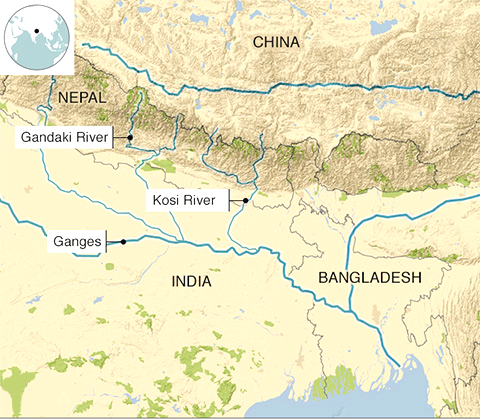Bihar
Village in Bihar Refuses to Vote
- 02 May 2024
- 3 min read
Why in News?
For the past two elections, residents of Khokhanaha village in Supaul’s Kosi region have boycotted the 2019 Lok Sabha polls and the 2020 Bihar Assembly polls in anger against all political parties over lack of government initiative to mitigate their sorrows from Kosi river.
- Due to this Khokhanaha village is also refusing to vote in the 2024 elections.
Key Points
- The Kosi River caused significant damage to the village a few years ago, and a year ago it isolated the village and four others from Supaul.
- These villages are now located on an island between two streams of the Kosi. Despite being only five kilometers away on the map, it takes an entire day to travel to Supaul for basic necessities.
- Residents of Khokhanaha and neighboring villages in the Kosi belt feel neglected by the government.
- They endure recurring floods, which devastate their lives and livelihoods without proper compensation or measures to control the river. Essential services like electricity and healthcare are also lacking in these areas.
The Kosi River
- The Kosi is a trans-boundary river which flows through Tibet, Nepal and India.
- It has its source in Tibet that includes the world's highest upland, it then drains a large part of Nepal before emerging onto the Gangetic plains.
- Its three major tributaries, the Sun Kosi, Arun and Tamur meet at one point just upstream of a 10 km gorge cut through the Himalayan foothills.
- The river crosses into northern Bihar, India where it branches into distributaries before joining the Ganges near Kursela in Katihar district.
- The Kosi carries the maximum amount of silt and sand after the Brahmaputra in India.
- It is also known as the “Sorrow of Bihar” as the annual floods affect about 21,000 sq. km. of fertile agricultural lands thereby disturbing the rural economy.





